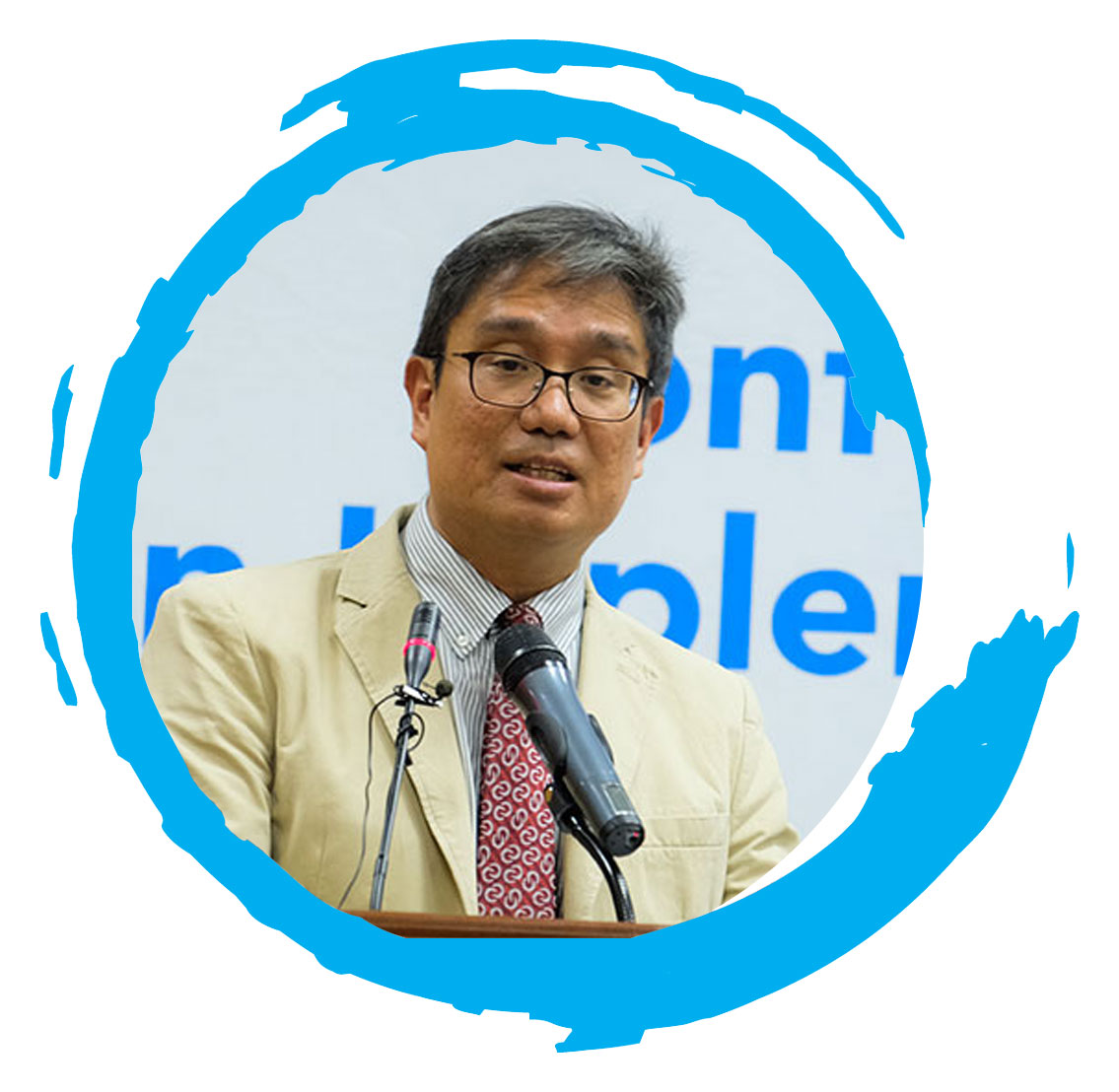
Napeleon Navarro Senior Deputy Country Director (UNDP)
I would wish to congratulate Kateb University for this effort which is the first one. I want to talk about three things this morning. First, UNDP’s role in SDGs, second, I would like to talk about how UNDP under the leadership of Ministry of Economy has been implementing the SDGs in Afghanistan, and last what does it mean for universities, academic and think tanks in Afghanistan.
First, as mentioned by the previous speakers, unlike the MDGs, SDGs recognizes the complexity involved and how no single agency or ministry can undertake the tasks. If the SDGs are to be achieved, it should be achieved in a whole of society or at least a whole of government approach and that would involve the universities. Unlike the other UN Agencies, UNDP under the UN reform has been tasked to support government and other UN Agencies to help achieve the SDGs in every country. Other UN agencies are focused on their mandates, UNDP is obligated to work with other UN agencies to help the government achieve; so, it is a little bit different. Because UNDP recognized that SDGs are fundamentally complex. UNDP globally has four roles to help the government and other UN Agencies; first, Policy and Program (Solutions to Achieve the SDGs), secondly, providing support for metrics and analysis, third, SDGs financing, and last Knowledge and Innovation. There was a roundtable discussion held here a month ago discussing specifically the radical integrative modeling, working with the government to develop an economic model to be able to understand how policies impact not just income but across all 16 SDGs. Therefore, we are also working under the leadership of Ministry of Economy, on supporting the effort and prioritization, data mainstreaming, localization as well as looking at 2020 to 2030 roadmap which his Excellency Mr. Mastoor described earlier. The goal is to have an integrative model which different ministries can use to have a policy dialogue to actually look what are the tradeoffs and synergies if we invest in different areas such as agriculture and public health.
Let’s come to point and talk about what it means for universities and think tanks in general. I pass it two implications. First, to universities academia as generators of knowledge, I will propose a policy development model which I have seen in China. The fact is, every ministry is busy running the country. In China they developed a model where every ministry has a think tank, which is actually a university. We had university working for climate change, we had universities working with regard to the issues of the 270,0000 migrant workers who were basically unintegrated in the coastal cities and yet they were the same who were driving China’s Economic Growth. But yet they could not get health, education or housing. So, the whole issue was how to deliver public services to them. So, the thing about the think tanks was that they were given a lot of ways to work with Civil Society. Maybe the ministries cannot reach out across for Political Reasons, but the think tanks and the universities allowed that. So perhaps as a model, the government of Afghanistan and the universities may think to what Jeffrey Sachs said earlier. As SDSN, but more, they should think of the Think Tanks to support discussions across the government. My second implication comes from a more developed pathway perspective. What the role of universities in Afghanistan is in today’s world. AREU likes to talk about the lack of development challenge of Afghanistan. The fact is that, in today’s industrialization, you are talking about industrialization 4.0. You are now in what they call in economics as “Demographic Dividend Period”. When you look at the history of East Asia, China, Singapore, Hong Kong, Taiwan, Japan, the fastest economic growth in their period happened in the Demographic Dividend Period. It is time, like in Afghanistan when half of the population is below the age of 25 or your fertility rates maybe high. But that is an opportunity because most of the world is almost below its fertility rate. The question is if Afghans will be participating in the world which is aging, investment in human capital will be important and now is the time of Demographic Dividend Transition. And if you learn from lessons of the East Asian Countries, it is a time of great opportunity. But as I said earlier, if not careful, I can think of a couple of countries where it caused serious problems because of not being taken the advantage of. 100,000 people are entering the workforce every year, jobs have to be created and the youth have to be educated.
Comment is not allowed